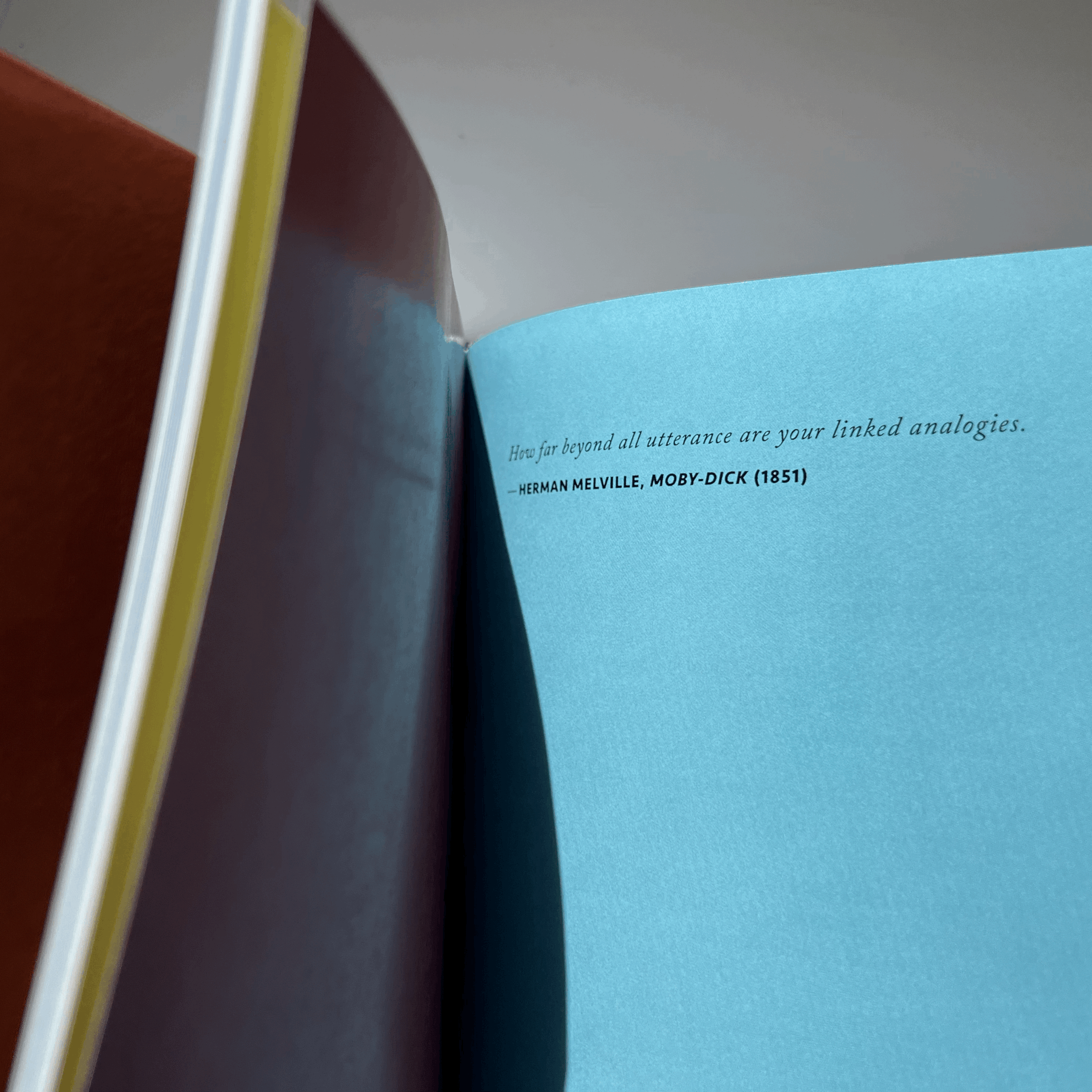Analogies
Analogies
Photographs by Kate Joyce & Gordon Cameron
Foreword by Melanie Mitchell
Hardcover
550 pages
6 x 9 in.
15.24 x 22.86 cm.
Special Problems Press
Edition of 100 (20 copies left)
Revised Edition 2023
Signed
Shipping Included
Hardcover Revised Edition 2023
Analogies, a dialogue in picture sequences between photographer Kate Joyce and software engineer Gordon Cameron, asks how human minds make connections and challenges the idea that artificial intelligence could do the same.
Early in their friendship Kate and Gordon spontaneously left words behind and began communicating through a volley of pictures and visual rhyme. Through their five-year visual exchange they learned that the complex and fundamental domain of analogy-creation appears vital and endless.
How does—humor, a puzzle, communication, vision, or a friendship—work? There are no right answers, but we know them when we see them.
With a foreword by Melanie Mitchell, Davis Professor at the Santa Fe Institute. Mitchell has authored and edited six books and numerous scholarly papers in the fields of artificial intelligence, cognitive science, and complex systems. Her latest book is Artificial Intelligence: A Guide for Thinking Humans (Farrar, Straus, and Giroux).
“In an analogy, we recognize that two things are, in essence, the same, even if they are superficially quite different. Making analogies is, in the words of the psychologist Robert French, a recognition of the “subtlety of sameness.”—Melanie Mitchell
Kate Joyce is an artist using photography to explore interfaces between the ordinary and extraordinary. Her work is informed by the geometry of light and space along with documentary processes and remains attuned to elements of ambiguity and mystery. Often employing typologies, relationships between pictures and literature, and collaboration. Other books include Metaphysics (Hat & Beard Press, 2022), Metamorphoses (Special Problems Press, 2021) and Big Ears Knoxville(Hat & Beard Press, 2019). She is based in Santa Fe, New Mexico.
Gordon Cameron works at Epic Games. Before that he was a software engineer/TD with Pixar Animation Studios, developing tools and technology used by animators on films such as "Finding Nemo", "The Incredibles", "Ratatouille", "Cars" and "Wall-E". Cameron grew up in the North-East of Scotland, graduated from Aberdeen University, worked in the fields of robot vision, parallel programming, and scientific visualization with the University of Edinburgh & EPCC, edited SIGGRAPHs magazine, and worked on animation software as a tech lead at Softimage. Cameron joined Pixar and moved to Berkeley in 2002.
Melanie Mitchell is the Davis Professor at the Santa Fe Institute. Her current research focuses on conceptual abstraction, analogy-making, and visual recognition in artificial intelligence systems. Melanie is the author or editor of six books and numerous scholarly papers in the fields of artificial intelligence, cognitive science, and complex systems. Her book Complexity: A Guided Tour (Oxford University Press) won the 2010 Phi Beta Kappa Science Book Award and was named by Amazon.com as one of the ten best science books of 2009. Her latest book is Artificial Intelligence: A Guide for Thinking Humans (Farrar, Straus, and Giroux). Melanie originated the Santa Fe Institute's Complexity Explorer platform, which offers online courses and other educational resources related to the field of complex systems. Her online course "Introduction to Complexity" has been taken by over 25,000 students, and is one of Course Central's "top fifty online courses of all time".
















